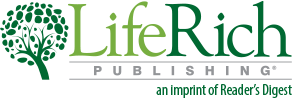Author Resources
The ABCs of ISBNs, LCCNs, and Copyright for Writers and Authors
As an author embarking on your publishing journey, you need to familiarize yourself with some key concepts related to publishing standards, identifiers, and legal protections. This article will explain the ABCs of three important acronyms in a beginner-friendly way: ISBNs, LCCNs, and copyright.
You will learn what each of these terms means, why they matter for your book, and how to obtain them. With a solid understanding of ISBNs, LCCNs, and the basics of copyright, you will be well on your way to leveraging these tools to help your book thrive.
This simplified guide aims to make these publishing concepts accessible by breaking them down into their core components and use cases. Equipped with this introductory knowledge, you can publish your book with confidence and clarity around vital identifiers and legal protections.
What Is an ISBN and Why Do You Need One?
An ISBN or International Standard Book Number uniquely identifies your book. It allows booksellers, libraries, and readers to discover your book. As an author, obtaining an ISBN is essential to distributing and selling your book.
How ISBNs Work
An ISBN consists of 10 or 13 digits that represent attributes like publisher, title, edition, check digit, and format. The ISBN identifies the specific edition and format of your book to facilitate ordering, listing, and inventory management. Each unique format of a book (hardcover, paperback, ebook) requires a separate ISBN.
Why You Need an ISBN
An ISBN helps establish your credibility as an author and opens up more opportunities. It:
- Enables your book to be sold by retailers like Amazon, Barnes & Noble, and independent bookstores.
- Allows libraries to purchase and catalog your book.
- Provides metadata to help readers discover your book online.
- Confirms you hold the commercial rights to distribute your book.
- Distinguishes your book in a crowded market. With millions of books published each year, an ISBN helps your book stand out.
As an author, obtaining ISBNs for your books is a necessary step to accessing sales and distribution channels. While the ISBN process can seem complicated, companies like LifeRich Publishing are available to help guide you through the steps to get ISBNs for your books. With the right support, you'll have the platform to make your book available to your ideal readers in no time.
Obtaining and Using Library of Congress Control Numbers
The Library of Congress assigns Library of Congress Control Numbers (LCCNs) to selected published works. An LCCN uniquely identifies a book and aids in accurate cataloging and shelving. Although not mandatory, obtaining an LCCN can enhance a book's credibility and discoverability.
Applying for an LCCN
To apply for an LCCN, you will need to provide the Library of Congress with details about your forthcoming publication, including the book's title, author, publisher, publication date, page count, and a brief summary. There is no cost to obtain an LCCN. Once your application is approved, the Library of Congress will assign a unique LCCN for your work. The LCCN should be printed on the copyright page of your book to aid in identification and cataloging.
Using Your LCCN
Once your LCCN has been assigned, it should be printed on the copyright page of your book, typically on the verso of the title page. The LCCN uniquely identifies your work and allows libraries and bookstores to locate, acquire, and catalog your book.
A few self-publishing companies, like LifeRich Publishing, will handle obtaining an LCCN on your behalf, but as an author, you should still understand the purpose and process. An LCCN can increase the discoverability of your book, making it more accessible to readers and libraries.
For additional information on LCCNs, consult the Library of Congress's website. The site contains details on the CIP program, instructions for completing an application, and answers to frequently asked questions about LCCNs.
Obtaining proper identification for your work, like an LCCN, ISBN, and copyright, establishes your book as an official publication. While the processes may seem complicated, the end result of making your book discoverable and protecting your rights as an author is well worth the effort. With the right knowledge and resources, you can navigate them with confidence.
What Every Writer Needs to Know About Copyright
Copyright laws exist to protect the original creations of authors, artists, musicians, and other creators. For writers and authors, understanding copyright basics is essential for publishing and distributing your work legally while protecting your rights. Here are some of the most important things every writer needs to know about copyright:
Registration vs Automatic Protection
As an author, your work is automatically protected by copyright the moment it becomes fixed in a tangible medium of expression, such as when you type the first word of your story. However, registering your book with the U.S. Copyright Office provides additional benefits. Registration constructs a public record of your claim to copyright and allows you to pursue statutory damages and attorney's fees in an infringement lawsuit.
Licensing and Transferring Rights
While you own the copyright, you can license or transfer certain rights to third parties. For example, you may license print publishing rights to a book publisher while retaining ebook rights or film rights. You can also transfer select rights, such as film rights, on an exclusive or non-exclusive basis. When negotiating licenses and transfers, aim to retain as many rights as possible so you can benefit from your work in other mediums. You can also place time limits on exclusivity and renegotiate deals in the future.
Public Domain
Works eventually enter the public domain, meaning the copyright has expired, and the work can be used freely by anyone. Currently, works published in the U.S. before 1925 are in the public domain. For books published after 1978, copyright lasts for the life of the author and another 70 years. Be aware of the copyright term for your works so you can take advantage of rights reversion and renewal opportunities.
Understanding copyright law empowers you to protect and benefit financially from your creative works. Register your work, be wary of work-for-hire agreements, retain as many rights as possible, and stay up to date on the duration of copyright for your materials. Following these best practices will establish you as a professional in your field.
Take Ownership of Your Writing
As a writer or author, understanding the basics of ISBNs, LCCNs, and copyrights empowers you to make informed decisions when publishing and protecting your creative works. Though the details may seem complex at first, the core concepts are straightforward.
Assign your book an ISBN for identification and discovery. Seek an LCCN from the Library of Congress for authoritative cataloging. Register your copyright to establish ownership. While you need not become an expert in publishing minutiae, grasping these fundamentals allows you to focus on your passion: writing. With the simple ABCs in hand, you can publish and promote your stories with confidence. At LifeRich Publishing we take care of the all the registrations for you, so you can concentrate on writing and marketing your book.
Publishing
Publishing: Fiction
By clicking “Request My Free Consultation”, you are providing your electronic signature, voluntarily authorizing LifeRich Publishing and its affiliates to contact you using a manual or automated telephone dialing system and send you advertisement or telemarketing messages by email or text/SMS/MMS message to the address and phone number you have provided above. You are not required to agree to this in order to buy products or services from Balboa Press. You certify that you are over the age of eighteen (18). You’ll get up to ten (10) messages per month. Standard message and data rates may apply. Click here to view our privacy policy.



